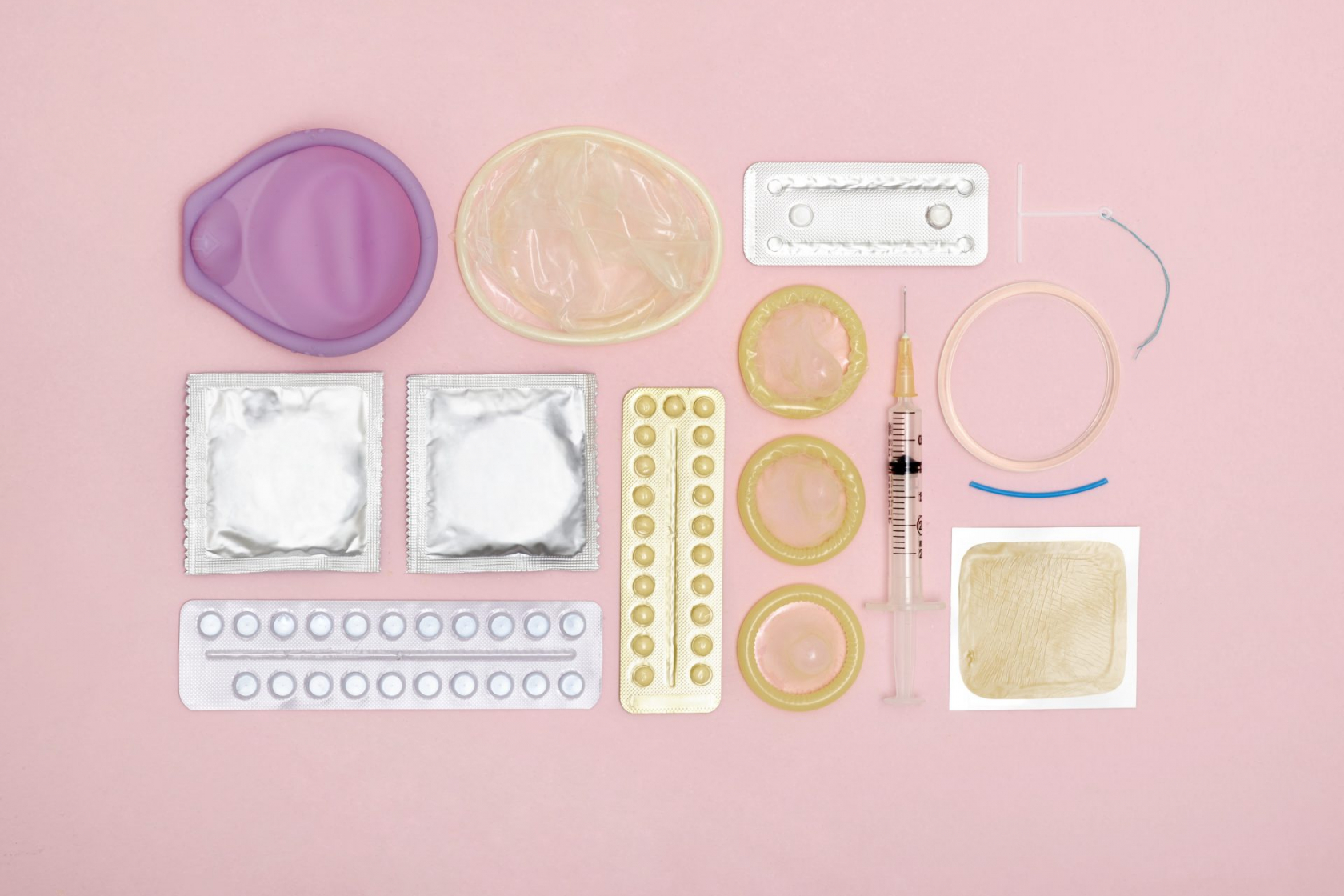How do women really feel about contraception in 2021?
Written by Lauren Geall
As Stylist’s digital writer, Lauren Geall writes on topics including mental health, wellbeing and work. She’s also a big fan of houseplants and likes to dabble in film and TV from time-to-time.
Contraception is a massive part of many people’s lives – but what relationship do women and people with uteruses really have with contraception in 2021? We asked Stylist readers to tell us about their experiences.
It’s not an overstatement to say that modern contraception has completely transformed the way women and people with uteruses live their lives. From the invention of the pill in the 1950s to the introduction of the IUD, these medical interventions have allowed us to control our fertility, periods and even reduce acne.
But finding a type of contraception that’s right for you isn’t always easy. In fact, for some women, it’s an incredibly hard and taxing process that requires months or years’ worth of research and experimentation – recent research from Natural Cycles found that 86% of women have switched up their primary method of contraception two or more times, with 73% making those changes due to unwanted side effects.
And that’s not forgetting the fact that some types of hormonal contraceptives can trigger uncomfortable side effects in some people who use it – in a poll of Stylist readers from 2019, two-thirds said they had suffered from side effects including exhaustion and feelings of depression while using hormonal contraception.
With developments in contraception being made all the time, and the events of the last 18 months impacting our sex lives in a number of ways, this World Contraception Day (26 September) seemed like the perfect time to ask: how do women really feel about contraception in 2021?
To find out, we asked Stylist readers to tell us more about their experiences – here’s what they had to say.
Finding the right type can be difficult

In an Instagram poll of Stylist readers we conducted last week, nearly three in four respondents said that finding the right contraception was difficult or somewhat difficult for them, with some even saying that they still hadn’t found something that felt like a “good option” for them after multiple attempts.
This was an experience that Emma Gayle, from Manchester, knows all too well. She started taking the pill at the age of 13, but says she struggled through her teenage years and early 20s to find something that worked for her.
“I tried multiple different kinds until the age of 20 but never found them to have any pros apart from the not falling pregnant element,” she says. “After my second child I decided to try the implant – a huge regret looking back now.”
She continues: “My endometriosis and PCOS really flared up within two weeks of having it put in, and I bled for five and a half months straight. I also had terrible acne and my mental health plummeted.”
She later made the decision to get sterilised at age 26 after the birth of her two children – but says the process (and contraceptive products themselves) “played havoc” with her emotions and mental health.
It’s important to change your contraception if it’s not right for you
Another common theme among the Stylist readers who responded to our poll was a willingness to change their contraception if something didn’t feel right – even if that meant trying a new method of contraception entirely.
When we asked how many types of contraception readers had tried (including different types of the same pill), 29% said they had tried four or more types, with a third having tried three different types. And while some women said they still hadn’t been able to find something that worked, others said their experimentation had ended in success.
Jasmine Granton, 28, from Bedford, was able to find a method of contraception that worked for her after struggling with uncomfortable side effects from a range of different pills from the ages of 14 to 22.
“Terrified to try anything else, I didn’t use contraception for a few years (condoms only) to give my body a rest and a chance to regulate itself,” she says of her decision to stop taking the pill.
“Since then, I decided to go on the coil. I wish somebody told me just how much it hurts to be inserted, but while the first few days were bad, I’ve had no problems since. It definitely feels the best option for me right now – although I’m dreading having it removed as I’ve heard horror stories about the pain.”
It’s OK to change your mind (even once you find something that works)

Many of the women who responded to our poll had decided to make a change to their contraception simply because they wanted to try something hormone-free or give their body a ‘break’. Indeed, among our survey respondents, one in five said they were not currently using contraception or coming off of it.
42-year-old Jo O’Connell is one of these women. She had the coil fitted six years ago and experienced zero problems while on it, but still made the decision to have it removed this year.
“Having it removed was painless and very easy,” she explains. “I made the decision because I wanted to go hormone supplement-free – to know what my body is doing – especially as the perimenopausal years are ahead of me.”
Gemma Hayley Nice, 38, also made the decision to come off the pill after years of it working, simply because “it didn’t feel quite right” anymore.
“It was then that we decided we didn’t want any more children anyway and that my husband would have a vasectomy – so that’s what she did,” she explains. “I always think go with what works for you and don’t be afraid to say no if it doesn’t feel right. You are the only one who knows your body better than anyone else.”
For more information about contraception, you can check out these articles from Stylist.co.uk or visit the NHS website.
Images: Getty
Source: Read Full Article


